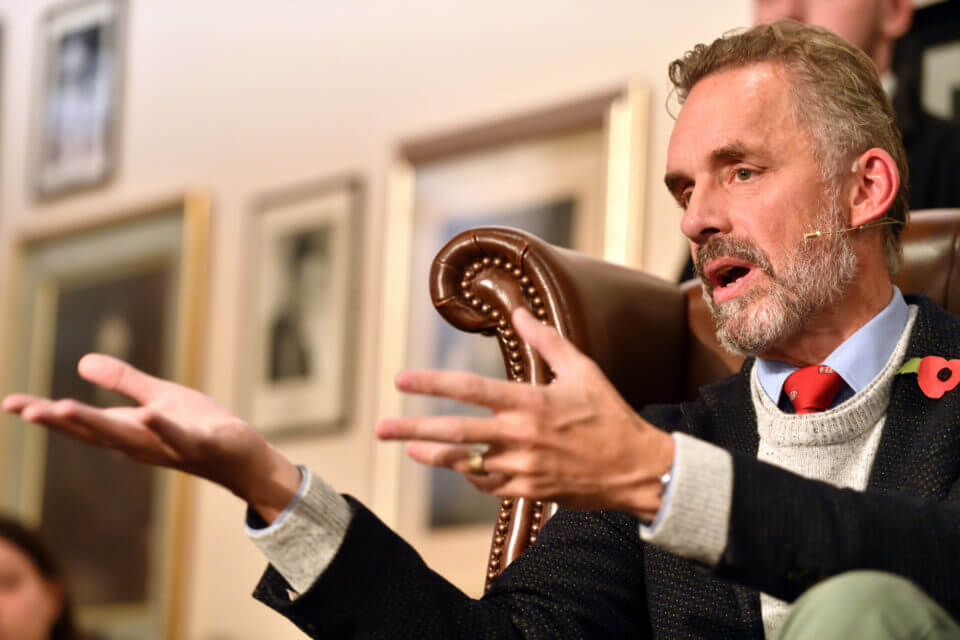
“I’m not a disciple of Dr. Peterson’s. But he has inspired and helped to heal me with his words, and I admire him most for the example that he’s set with his own life: the courage to stand up, with shoulders back and face the darkness.”

“I’m not a disciple of Dr. Peterson’s. But he has inspired and helped to heal me with his words, and I admire him most for the example that he’s set with his own life: the courage to stand up, with shoulders back and face the darkness.”

A look back on our editor’s choices for their favorite Merion West articles of 2017.
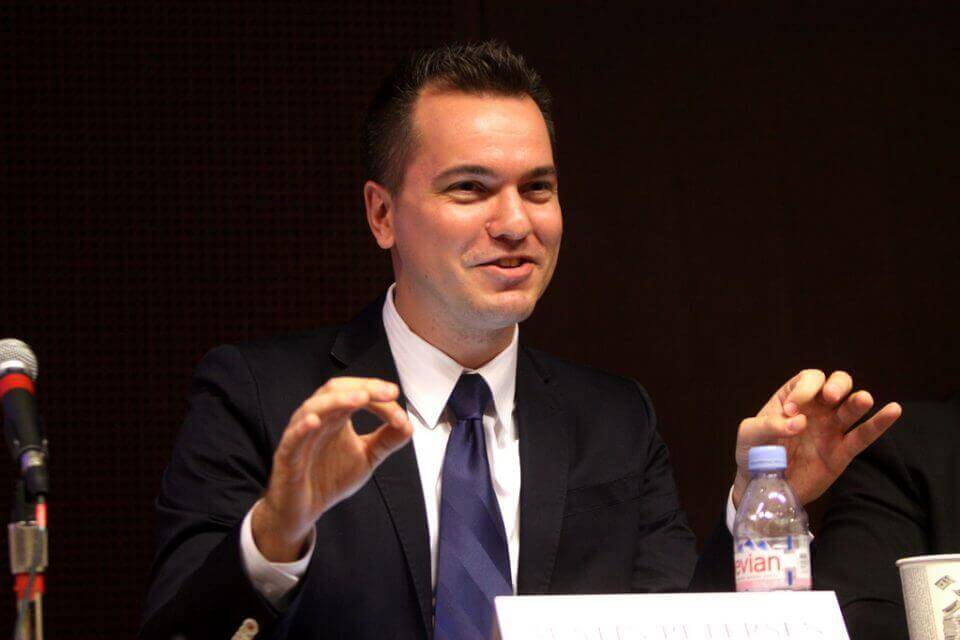
Missouri Senate candidate and libertarian activist Austin Petersen joins Merion West to discuss trade, immigration and his decision to run for Senate as a Republican.
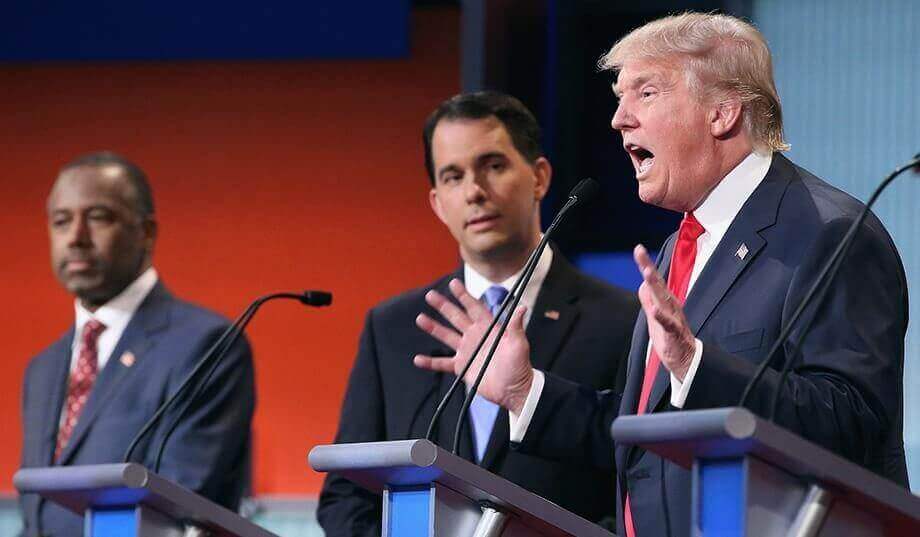
If you ask someone for his favorite president, odds are he’ll tell you Lincoln or FDR. These are reasonable answer of course. But American history is interesting and complicated, and we should make an effort to look beyond the obvious.
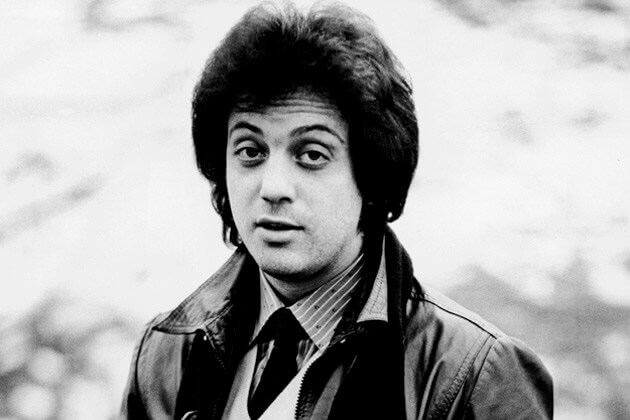
Fans are tired of celebrities assuming they can’t make informed political decisions for themselves.
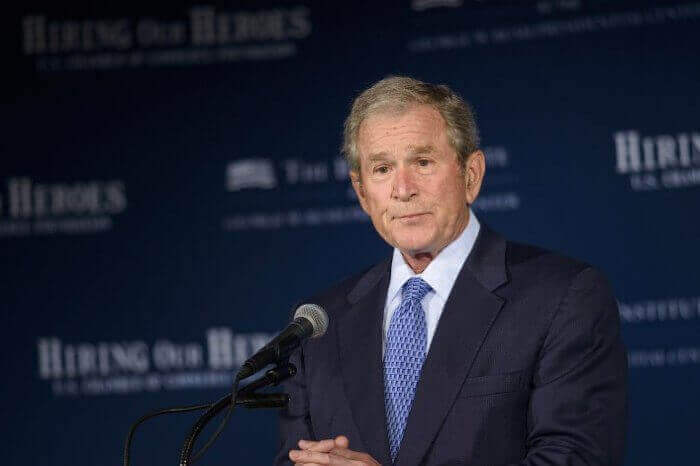
For a former President who has promised to devote his retirement to helping veterans, Mr. Bush’s decision to charge $100,000 to deliver a speech to Helping a Hero charity and an additional $20,000 for a private jet is truly alarming.
Another example of former politicians profiting while nominally “serving the people.”President Barack Obama when asked if he would follow the example set by his predecessor and refrain from criticizing the policies of his successor responded: “…if there are issues that…go to core questions about our values and ideals, and if I think that it’s necessary or helpful for me to defend those ideals, I’ll examine it when it comes.” President George W. Bush and the self-imposed obscurity that he has chosen since his presidency ended has been praised as the ideal for which a former president ought to strive.
Mr. Bush has suggested that his withdrawal from public affairs in his retirement was inspired by his readings on George Washington, who, at the end of his time as commander-in-chief, rode away to Mount Vernon and refrained from interjecting himself into matters of government. Similarly, Harry Truman was known to keep a statue of a plow on his desk in recognition of his hero, the Roman general Cincinnatus, who relinquished governing power in favor of returning to his farm and plough.
Although the aspects of Mr. Bush’s retirement most frequently chronicled by the media have been his new hobby of painting and his work routines on his ranch, like former President Bill Clinton and his wife Hillary Clinton, Mr. Bush has notably supplemented his income with paid speeches. This was, of course, a significant issue for Hillary Clinton’s campaign when she was criticized for charging large sums of money to speak at corporations and financial institutions in what some construed as payment for preferential treatment by the State Department.
However, an eyebrow-raising event in Mr. Bush’s supposedly quiet and uneventful retirement was his July 2015 decision to charge $100,000 to deliver a speech to Helping a Hero charity, an organization that aims to provide aid to soldiers wounded in Iraq and Afghanistan. He also required a payment of $20,000 to cover his transportation to Houston in a private aircraft. Mr. Bush’s spokesman has stated that the former President “has made helping veterans one of his highest priorities in his post presidency.” However, this help to veterans comes at a cost.
One former marine who works for the organization and who lost both of his hands as a result of combat in Iraq criticized Mr. Bush’s decision to charge a fee to speak: “For him to be paid to raise money for veterans that were wounded in combat under his orders, I don’t think that’s right.”
Then-presidential candidate Donald Trump tweeted during the summer of 2015 a condemnation of President Bush’s speaking fees: “Jeb’s brother George insisted on a $100,000 fee and $20,000 for a private jet to speak at a charity for severely wounded vets…”
Many argue that there is nothing fundamentally improper with politicians and former politicians enriching themselves through legal means so long as their private economic interests align with the public interest, or in this case, benefit a charity with a worthwhile mission. In fairness, the organization more than doubled its revenue the year Mr. Bush spoke as compared to the previous year in which he did not. But all the same, there is a troubling irony in that a President sends his troops into combat and then asks them for money to speak to them. However, for many, politicians becoming wealthy while supposedly acting as or having been “public servants” causes a visceral repugnance. In this case, there is something particularly disturbing about Mr. Bush’s actions given that he had sent these servicemen and women into combat and then, while claiming to be devoting his retirement to serving these veterans, charges six figure sums of money to deliver remarks.
When you have served as President, as tempting as this image of Cincinnatus might be and returning entirely to the responsibilities one has as a private citizen alone, an ex-president always remains a steward of the public’s trust and ought to be a role model upon which all Americans might look to for guidance. Particularly tangible examples of an ex-President’s stately duties in retirement might include his holding office in his Presidential Library, authoring books, and continuing to appear at major events both internationally and domestically as a sign of the unity enjoyed between the past and present leaders of the nation. In the case of Mr. Bush, he notably authored a biography of his father 41: A Portrait of My Father and was involved in his brother, Jeb’s, 2016 Presidential Campaign.
Although legal and done all too frequently, that anyone who has held the office of President United States ought to be too dignified to enter into an arrangement where a former commander-in-chief is being compensated lavishly for working on behalf of the American troops he once commanded and thrust into danger in the interests of our country.
Staff in concert with Lucas Elek. Mr. Elek is an undergraduate majoring in political science at Williams College. He worked this past summer on Katie McGinty’s senatorial campaign.

How could someone say no to giving Mother Teresa a medal?
Not a single member of the House, all of whom had voted to spend the taxpayers’ money to fund this award was willing to personally contribute $100 dollars of his own money.I oppose the Gold Medal for Mother Teresa Act because appropriating $30,000 of taxpayer money is neither constitutional nor, in the spirit of Mother Teresa who dedicated here entire life to voluntary, charitable work, particularly humanitarian.
During his time in the House of Representatives, Congressman Ron Paul (R-Tx) had a voting record of philosophical consistency perhaps unmatched in recent congressional history. He sought to limit government at practically every turn and to uphold a strict interpretation of the Constitution. His refusal to compromise remains one-of-a-kind in a political system generally marked by groupthink on the part of members of both parties. (This is not to say that compromise is not valuable in politics. It is just refreshing to see someone always willing to stand by his principles). Many conservatives may now prefer his son’s approach. Although Senator Rand Paul (R-Ky) may generally support similar principles, he is more inclined to work within the framework of the current system. Ron Paul’s desire to do away with an institution as entrenched as the Federal Reserve would require nothing short of radicalism.
However, it is perhaps the case that part of Ron Paul’s appeal was his radicalism, his role as often the only member of Congress to take issue with some of the most unquestioned conventions and incentives commonly bemoaned by a public that habitually assigns Congress an approval rating below 20%. It was not unheard of for the House to take a vote, and the final tally be 434-1 with the lone dissenting vote being that of Congressman Paul’s.
One example of Paul being the lone dissenter took place on May 20, 1997, when Congress passed H.R. 1650, which authorized “the President to award a gold medal on behalf of the Congress to Mother Teresa of Calcutta in recognition of her outstanding and enduring contributions through humanitarian and charitable activities.”
How could someone say no to giving Mother Teresa a medal?
Ron Paul, after being the only member of the House to oppose the award released a statement providing his explanation:
I oppose the Gold Medal for Mother Teresa Act because appropriating $30,000 of taxpayer money is neither constitutional nor, in the spirit of Mother Teresa who dedicated here entire life to voluntary, charitable work, particularly humanitarian.
Congressman Paul continued:
I invited each of these colleagues to match my private, personal contribution of $100 which, if accepted by the 435 Members of the House of Representatives, would more than satisfy the $30,000 cost necessary to mint and award a gold medal to the well-deserving Mother Teresa. To me, it seemed a particularly good opportunity to demonstrate one’s genuine convictions by spending one’s own money rather than that of the taxpayers who remain free to contribute, at their own discretion
Not a single member of the House, all of whom had voted to spend the taxpayers’ money to fund this award was willing to personally contribute $100 dollars of his own money.
There is more than a small minority of politicians going around touting their generosity and support for countless programs, the infinite number of so-called good causes, and demonizing those who prefer fiscal restraint. How can you deny school children access to flute lessons on the taxpayer’s dollar or people with physical disabilities extra subsidies for recreation and entertainment rather than just medical care? Milton Friedman, if he were still living, might say to them:
Of course, an egalitarian may protest that he is but a drop in the ocean, that he would be willing to redistribute the excess of his income over his concept of an equal income if everyone else were compelled to do the same. On one level this contention that compulsion would change matters is wrong-even if everyone else did the same, his specific contribution to the income of others would still be a drop in the ocean.
It may be an effective strategy for an elected official to score political points by touting how he is going to help this group and that group without considering where the money is coming from to support these so-called good causes. At times, it seems a platform of largesse sells better than promises of frugality with the taxpayer’s money.
Many Americans, including even fiscal conservatives, want, in the words of Bob Dole, “their government to do the decent thing, but not to bankrupt them in the process.” And as true as this may be, it does not diminish from the truth, too often forgotten by those tasked with allocating the hard-earned money of taxpayers, that it is so easy to be generous with other people’s money.
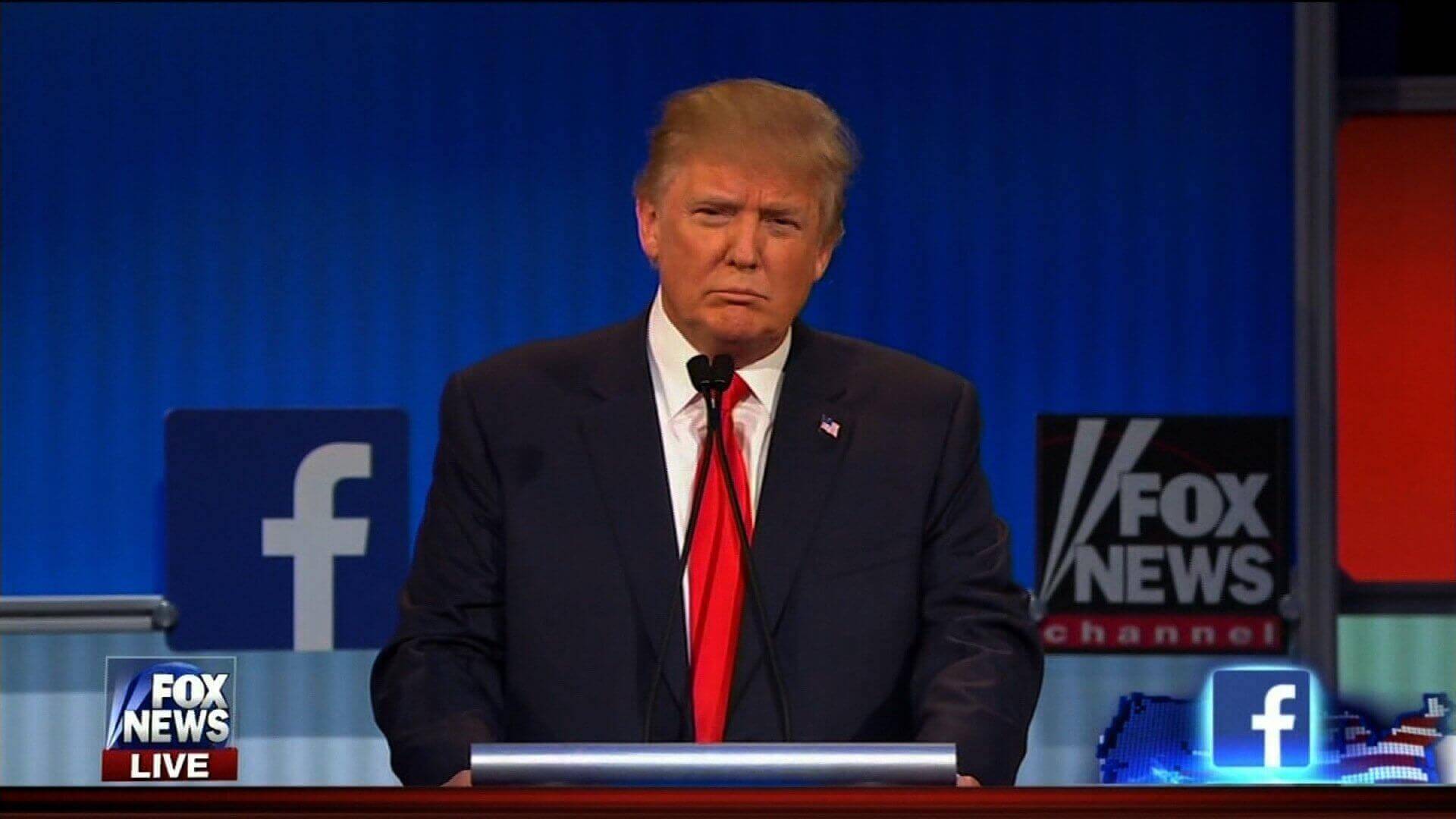
This note was sent today to our contributors, and we would like to share it with our readers as well.
Dear friends,
“In a revolutionary epoch, sometimes men taste every novelty, sicken of them all, and return to ancient principles so long disused that they seem refreshingly hearty when they are rediscovered.” At least that’s what Russell Kirk wrote.
The prevailing political ideas of a society come and go as if in a cycle. Those who study politics observe how difficult it is for one political party to hold the White House for more than three consecutive terms. In 1964, electing Mr. Reagan in 1980 may have seemed beyond imagination. And with the exception of Bobby Kennedy, few may have anticipated an Obama administration only 20 years after that of Reagan’s. This is not a refutation specifically of those arguments, which suggest that history progresses slowly but surely towards an endpoint. Perhaps if anything it is more similar to noticing how glasses with big rims come in and out of fashion every twenty years or so.
Democracy is about courting adherents just as feudalism may have been about capturing the loyalty of lords.
Democracy is about courting adherents just as feudalism may have been about capturing the loyalty of lords. Democracy is a political system about providing information and insights to voters to persuade them to see the issues as you do and to vote that way. That is the goal of any publication with a mission statement that seeks to uphold a fixed set of values. Unfortunately, it has become very effective to smear candidates with certain words that stick rather than to critique their policy. On our more optimistic days, we believe that the policies and positions we generally favor are so persuasive, so difficult to argue against or provide historical evidence to the contrary, that our opponents have no choice but to call us names, insult us, engage in elaborate schemes of character assassination.
Recall how politicians who favor certain policies such as an originalist interpretation of the Constitution are smeared as “against women.” Robert Bork was a particularly notable victim. Eventually, he was forced to declare: what does it mean that I am against women? Do I not like my mother, my wife, my daughter?
The editorial stance of Merion West will remain non-partisan. Ideas and issues are complicated, and sometimes the stances a party takes are more the result of calculation and political advantage than a respect for consistency of ideology.
The editorial stance of Merion West will remain non-partisan. Ideas and issues are complicated, and sometimes the stances a party takes are more the result of calculation and political advantage than a respect for consistency of ideology. This is not to say that the world is not, at times, paradoxical with seemingly-contradictory policies both having a degree of merit to them. The Left’s decision to oppose tobacco and break with its tradition of allowing people to do as they please in their private lives is one example of calculation rather than ideological change. Most voters like the idea of reducing dependence on tobacco, so that’s a position that sells.
In any election season, there are winners and losers. I hope, going forward, we can wring some lasting meaning from the campaigns waged this election cycle and engage more completely with some of the issues raised.
This is true for each side because in a healthy, functioning democracy, each political group must take its turn in the minority.
Our political system is one in which those who lose elections can still have faith that through re-shaping their message and working to persuade people to share their ideologies so that they can win at the next cycle. This is true for each side because in a healthy, functioning democracy, each political group must take its turn in the minority. At the moment, the majority party needs to continue to sell its arguments to the voters in order to have the best chance of success at the midterms.
Our purpose remains providing our readers with thoughtful, prudent commentary so as to arm them to make as informed a decision as is ever possible in our never-quite-certain world.
Thank you for your continued support of our budding project.
With best wishes,
The Editors